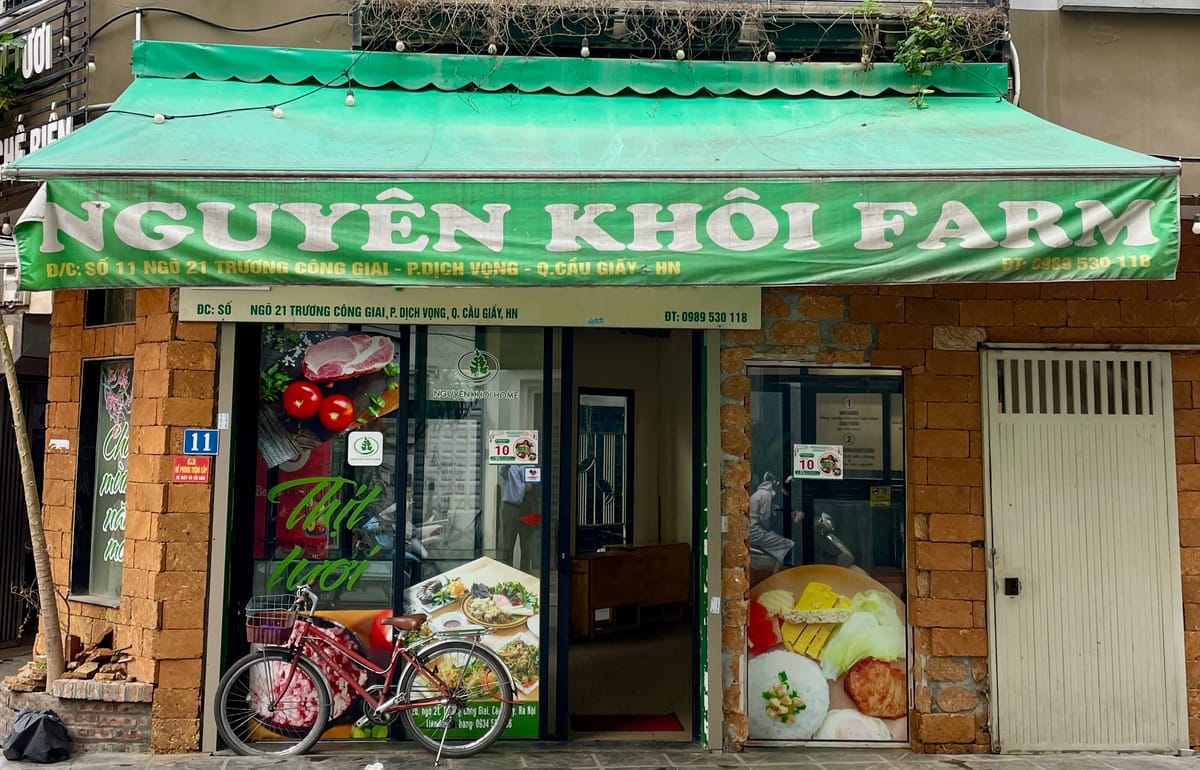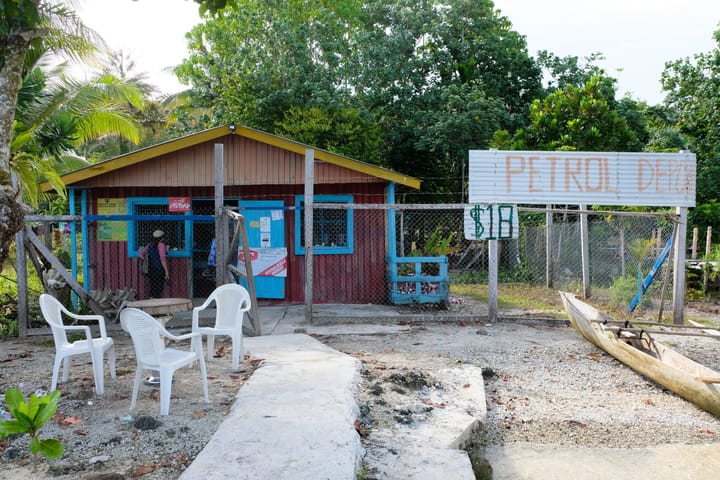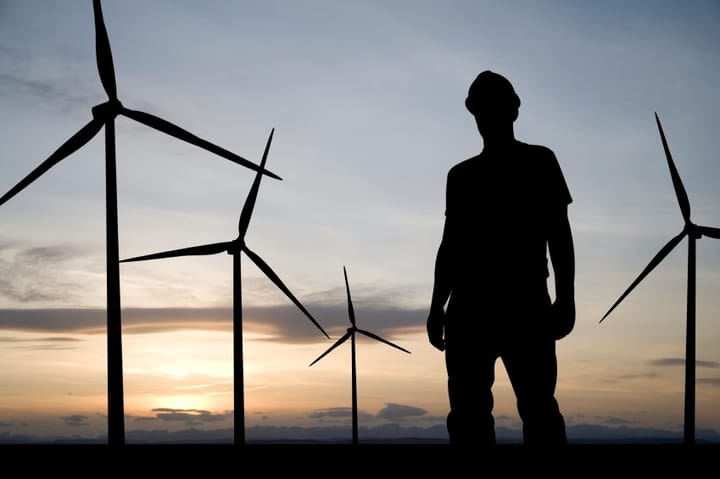Circular economy innovation: organic pork in Vietnam
Simon White | Circular economy innovation. Governments can learn from private innovators and work with them to create a business environment that sets the market signals for a sustainable, circular economy.

The private sector plays a significant role in transitioning to a circular economy. I was inspired after meeting with a woman in Vietnam who is at the forefront of this transition. She and her husband have invested in a new, more sustainable and valuable pork production model. They are showing the government and the industry how sustainable business can be profitably achieved.
Closing the loop
The circular economy is an economic system structured to reduce waste and resource consumption. It forms a closed-loop cycle by focusing on recycling and reusing resources to reduce input resources and minimise waste flows and greenhouse gas emissions into the atmosphere.
Achieving a circular economy requires a change of thinking. All inputs should be considered to ensure that any waste generated can be used, and all waste material generated must be regarded as a potential resource.
The European Investment Bank reports that in regions like Sub-Saharan Africa and Southeast Asia, agriculture is a crucial area of focus for circular economy initiatives. Projects target reducing food waste and optimising the use of agricultural by-products. The bioeconomy, which uses renewable biological resources, is also gaining traction, with countries working to integrate circular practices into agriculture and forestry.
Each industry has its challenges in the transition to a circular economy. In Australia, the pork industry’s Closing the Loop strategy focuses on five areas: feed, energy, nutrients, water, and solid waste.
From the family farm to a circular business model in Vietnam
Nguyen Phuong Thao grew up on a farm growing vegetables. Her father lectured in agriculture at the university. She remembers the family pig and the farm’s organic produce. As a parent, she grew increasingly concerned about the food quality she was feeding her children. So much so that she and her husband, who worked as an architect in Hanoi, bought their own small, one-hectare farm to grow healthier food.
As an environmental scientist, Thao was eager to explore sustainable farming methods. She and her husband developed a model for a circular economy approach to pig farming, recycling waste into household biogas and water for crops and growing earthworms for soil health and pig-feed production.
Thao and her husband quit their jobs in 2018 and founded Nguyen Khoi Green Joint Stock Company to produce and sell premium pork. Unlike conventional approaches to pig-raising that focus on cost reduction and rapid animal growth, Nguyen Khoi Green produces a premium product that sells for three times the price. Interestingly, costs are only slightly higher using this circular economy model. Animal feed costs are reduced by 28 per cent, fertiliser by 40 per cent and water by half.
Thao expects to be certified by the Humane Society International in 2024. Nguyen Khoi Green will be “among the first pork producers in the country and Asia to join the global movement to phase out gestation crates,” she told me. While the road to certification of organic pork is more prolonged, this is their ambition.
The long road to recognition and commercial success
Thao’s innovations in pig rearing connect to a growing interest in supporting the circular economy. The government of Vietnam and its development partners support innovation in this field.
In 2019, Nguyen Khoi Farm and 15 other businesses were selected from among 750 applicants to be awarded and sponsored by the World Bank through the Vietnam Ministry of Science and Technology and the Vietnam Climate Innovation Centre.
A few months later, they were one of three businesses to win the Blue Swallow Award in sustainable agriculture at Blue Swallow 2019, recognising pioneering business solutions to solve social problems and protect the environment. Blue Swallow is supported by the Vietnam Chamber of Commerce and Industry, the Union of Science and Technology Associations, the United Nations Development Program and the Centre for Social Initiatives Promotion.
Also, in 2019, Nguyen Khoi Farm’s innovative model was one of seven initiatives recognised by the Aus4Innovation (A4I) program. A4I produced a Commercialisation PLUS Guide, which helps scientists explore the route to the commercialisation of their work. The guide allows researchers and industry to work together to take a technology solution to market. The Commercialisation PLUS approach is based on inclusive innovation principles and goes beyond commercial outcomes to consider societal and environmental impacts. Nguyen used the guide and received 18 months of support, advice, and guidance from leading experts from Australia and Vietnam to open appropriate scientific trade partnerships and market access.
Shortly after the A4I support concluded, Thao fell into what she described as a “hole of sorrow.” She had no idea where to go next. “I was too confident and got a lot of attention… the company was growing faster than my ability.”
Fortunately, the UK-funded Leaders in Innovation Fellowships programme helped her out of this hole. Among other support, this provided training in London on business modelling, sales and marketing, leadership, value proposition, and finance. She was also assigned a British business mentor for a year who helped identify new market opportunities for premium pork and a business model for expansion. In 2021, she was supported by a local business mentor for a year to help her develop strategies relevant to local realities.
Creating systemic reforms that nurture an economic transition
Nguyen Khoi Green has benefited from several international development programs that recognise its innovative approach to pig raising. This model is good for the environment, animals and businesses.
The challenge is to create an ecosystem of support that will allow start-ups like Nguyen Khoi Farm to identify and develop markets and access the financial and business advice they require to grow.
Researchers from the CSIRO suggest that while success in a circular economy depends mainly on fit-for-purpose technology that minimises environmental impact and maximises value, policy and regulations have an essential role to play. “As technologies are being demonstrated at commercial scale, policies relevant to renewable energy, waste management and sustainable production should enable quick uptake and adoption.”
Economic incentives can be established to assign value to the environmental costs of land used for waste disposal. This approach will bolster the economic sustainability of management systems that prioritise higher waste hierarchy practices. Additionally, regulations promoting animal production waste in feed and fertiliser are essential.
Circle Economy reports that governments worldwide are stepping up regulations to support circularity. For example, the EU is pushing strict environmental standards, ecolabelling, and extending "Right to Repair" laws. Policies aim to ban practices like planned obsolescence and the destruction of unsold goods and mandating transparency through systems like the upcoming Digital Product Passport to create transparency and unlock circularity.
The Circularity Gap Report 2024 argues that governments and industry leaders, if they want to turn theory into action and scale an economy that delivers on needs within the safe limits of the planet, need to dismantle harmful entrenched processes and align enabling elements:
- Create a level policy playing field. Set the ‘rules of the game’ through policies and legal frameworks that incentivise sustainable and circular practices while penalising harmful ones, shaping the nature and scale of economic activities across industries and nations.
- Get the economics right. Adjust fiscal policies and leverage public investment to create accurate prices and ensure that circular solutions become more valuable instruments and begin to replace linear norms.
- Build circular expertise and skills. Ensure people are skilled and trained to ensure a just transition where opportunities and decent livelihoods are fairly distributed across and within societies.
While Thao and her husband seek to scale their business to reach new markets, their model needs to be built on across the industry. Governments can learn from these private innovators and work with them to create a business environment that sets the market signals for a sustainable, circular economy.


